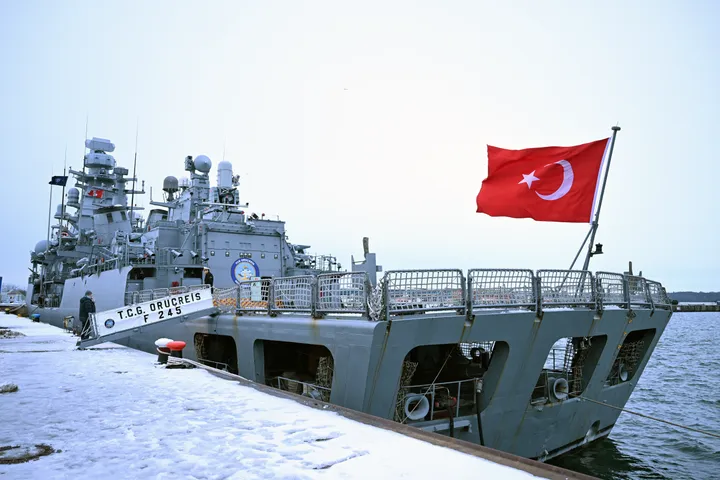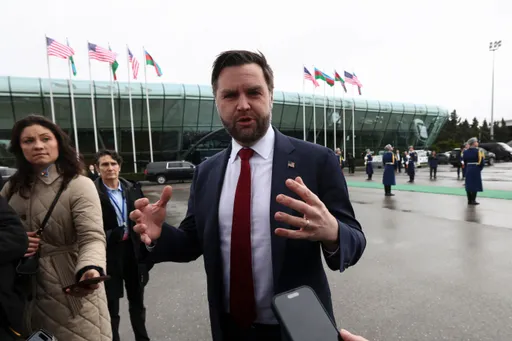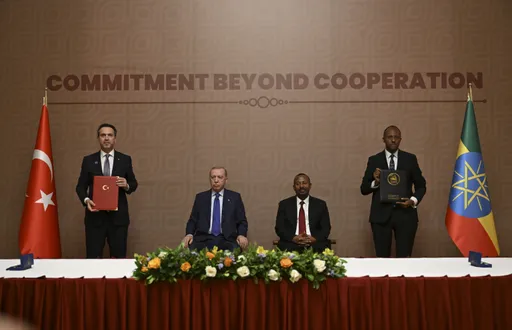At Saturday’s summit in Istanbul between Turkey, Russia, France and Germany, the focus was on extending the September 17 Turkey-Russia ceasefire agreement reached in Sochi that spared Idlib a full-scale offensive by Bashar al-Assad’s regime and his supporters, and to “progress” on the political track.
The proposal to make the current ceasefire in Idlib into a permanent feature of the Syrian landscape is not without its problems.
For Western governments, the primary—and in many cases the only—concern when looking at Idlib is the presence of “fighters."
There is a concentration of militants in the province grouped around Tandheem Hurras al-Deen, the declared Al Qaeda formation in Syria, and Hayat Tahrir al-Sham (HTS), which has formally broken from Al Qaeda’s command structure.
The Turkish government has set up a series of military outposts in Idlib and set about trying to destroy the militant groups by hiving off the workable sections and eliminating the rest through political and kinetic warfare.
Forcing HTS and its leader, Ahmad al-Shara (Abu Muhammad al-Jolani), into dealing with Turkey has created serious ruptures within the different factions. But this is slow-going and has involved the Turks in some short-term compromises which have yet to bear fruit.
A Western diplomat in Ankara put it this way: whatever the problems of Turkey’s approach, “It’s not like anyone else has a better idea, other than killing everyone in Idlib.”
Russia has argued that Turkey’s method is too slow in Idlib, and “the festering abscess needs to be liquidated” in the time-tested manner of destruction of property and people on display in Aleppo, Deir Ezzor, and so many other places.
Moscow’s presentation of a pro-Assad conquest of Idlib as a counter-terrorism measure has found some resonance in Europe. Nonetheless, most Western states have come to see the preservation of the ceasefire as desirable.
Even if they could stomach the large-scale war crimes that would attend an indiscriminate Assad attack on Idlib—and even if they are unconcerned about the threat to the integrity of a NATO state—they are fearful of the prospect of millions of refugees potentially laced with terrorists being scattered into Turkey and then into Europe.
Will Europe fail to act, again?
Given that the fallout from an Idlib offensive is a potential internal security threat to the European Union, it would be expected that the EU’s leadership had some fairly robust strategies to ensure that the ceasefire in Idlib holds. Such expectations are misplaced.
At the press conference after the meeting, French President Emmanuel Macron told reporters: “We are counting on Russia to exert a very clear pressure on the [Assad] regime”.
In the first place, the Kremlin has almost no control over events in Syria—and has admitted as much. The Iranians control events on the ground, and Tehran shares with Assad the desire to recapture every inch of Syrian territory.
Added to this, Moscow’s focus has been on shoring-up Assad, militarily and politically; when it comes time to choose between letting its decrepit client regime suffer humiliation in Idlib or tip the balance with bombing support, there is little doubt what the Russians will do.
Moreover, the supposed divisions in the Russia and Assad-Iran positions, always vastly overstated, simply do not apply over Idlib. Russia’s Foreign Minister Sergey Lavrov was quite plain two weeks ago, stating in public that the ceasefire reached in Sochi was a “temporary agreement” and Turkey, a joint guarantor of this arrangement, would have to “leave [Syria]”.
On the political side, the Istanbul meeting resolved, as the final communiqué put it, to establish “by the end of the year … [a] Constitutional Committee … that would achieve the constitutional reform, paving the way for free and fair elections under the UN supervision …, with all Syrians, including members of the diaspora, eligible to participate”.
These two pieces can be considered separately.
Jim Jeffrey, the US Special Representative for Syria, bluntly threatened Assad (and his sponsors) stating that if he refuses to engage in the process of re-writing the constitution, his regime will be further sanctioned and the Americans will, “make life as miserable as possible for that flopping cadaver of a regime and let the Russians and Iranians, who made this mess, get out of it.”
Since Assad is in control of the security agencies, and in his lawless state there can scarcely be a more pointless exercise than parsing what is written in the constitution, it is all the more instructive that he refuses to even go through the motions. There are insufficient points of leverage to compel Assad even on a point this trivial.
The notion of holding an election is more problematic still and underlines a deeper problem caused by Macron and German Chancellor Angela Merkel attending this meeting.
The Sochi ceasefire, whose preservation was the centrepiece of the Istanbul meeting, came about as part of the Astana political track, involving Turkey, Russia, and Iran.
Astana is supposedly separate from the internationally-recognised Geneva process, and ostensibly focused more on tactical military coordination and de-escalation, but the Russians have used the military progress made under the Astana banner to reshape the Geneva terms in Assad’s favour.
The Geneva process once spoke of forming a transitional government with “full executive powers”, staffed by officials chosen “on the basis of mutual consent” between the Assad regime and the opposition.
This meant, in theory, the opposition could—and would—veto Assad’s presence in such a transitional body. We are a long way from that now.
As a European diplomat recently explained: “We no longer talk about regime change. … We talk about ‘political change’. … It can be made-up more than real—so, for example, elections.”
Can Europe make a difference?
While it was always fanciful to believe Assad would negotiate his own demise at Geneva, it is even more preposterous to believe an election, if one was ever held, can now remove him—and the Europeans and everyone else know it, as the diplomat quoted above makes clear.
The expulsion of Syrians was not a side-effect of the war; it was the regime’s strategy to create a “healthier” population.
It is difficult to see Assad permitting their votes to count. Assuming diaspora ballots were counted accurately, there cannot be a free vote in a country like Lebanon controlled by Assad’s Iranian ally through its Hezbollah appendage.
I saw it myself in 2014, during the so-called presidential elections, where Syrian refugees voted at polling stations that were overseen by menacing Hezbollah operatives.
Under the political terror of Assad-ruled Syria, of course, there is no possibility of holding a free or fair election.
So why lend the imprimatur of the United Nations to a plebiscitary exercise as obviously foredoomed as this one?
One possibility was voiced by the above European diplomat: “Everyone is looking for an exit”, in other words a way to declare the war over and to accept Assad, and for that “we need progress on the political track”.
The EU has long prioritised limiting the refugee flow that is radicalising its own politics (to Russia’s advantage) and the anti-regime fighters.
Since they are indifferent to Iran’s regime setting up on NATO’s doorstep, powerful factions in Brussels have concluded that making peace with Assad is the way to go about this.
The EU’s de facto Foreign Minister, Federica Mogherini, has often reiterated that the organisation’s official stance is that it will not release “reconstruction” money to Syria until the political process has been completed under UN auspices.
An election, no matter how farcical, would allow the EU to claim this condition had been fulfilled and to shovel money into Syria that would help solidify the Assad regime’s position—reinforcing the overlapping patronage networks of warlords, sectarian killers, and organised criminals that keep it in power.
With reconciliation absent between Turkey and the US, Ankara is the only actor that can hinder the pro-Assad coalition’s designs in Idlib.
The Europeans could have chosen to put their political and financial muscle behind Turkey’s position to maintain the status quo in Idlib. Instead, at best the EU has made itself a bystander to events that impact its own security, and at worst it is pursuing a track that bolsters Assad, and by extension Iran and Russia, in Syria.























